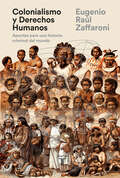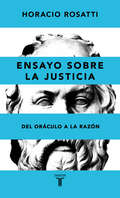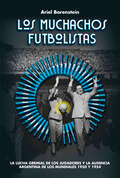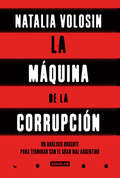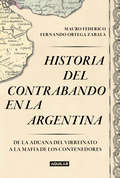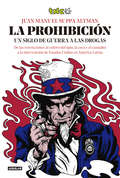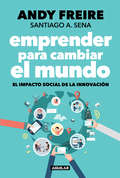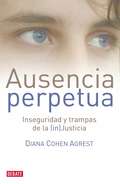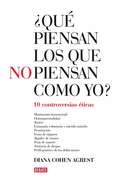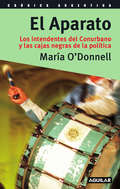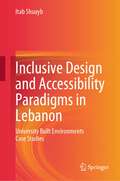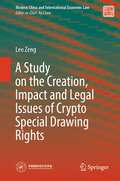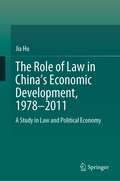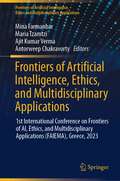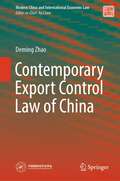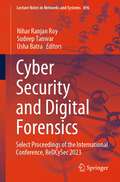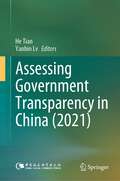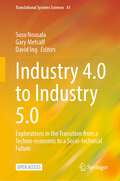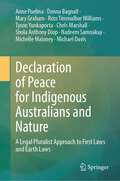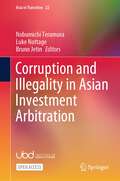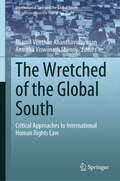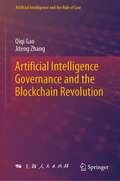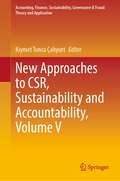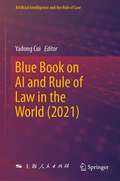- Table View
- List View
Filosofía de vida
by Carlos Mateo BalmelliEl nuevo libro de Carlos Mateo Balmelli, una de las personalidades políticas más sobresalientes de Paraguay hoy, y quien en los últimos años ha venido publicando una serie de novelas donde trata temas como el amor, la injusticia, la audacia de querer cumplir con los sueños y la búsqueda de la belleza, mezclando algunos personajes reales con otros de su potente imaginación. En Filosofía de vida, Carlos Mateo Balmelli configura un libro lúcido, honesto y muy consciente de que toda biografía siempre tiene algo ajeno porque el que escribe, al hacerlo, inexorablemente se transforma en otro. Las lecturas filosóficas, literarias y políticas heredadas de su padre se entremezclan con jugosas anécdotas que incluyen los primeros contactos con la muerte, un viaje iniciático a Alemania -donde el protagonista pretende estudiar en una lengua desconocida- y el descubrimiento del amor con todas sus virtudes y miserias. La búsqueda incansable de la belleza, el sacrificio sin concesiones del mundo de la política, la literatura como vía de escape siempre a disposición, las relaciones fundantes que marcan a fuego a una persona y esas contradicciones divinas que condensan nada menos que la humanidad son algunos de los temas de este libro impactante, que se propone algo tan sencillo como colosal: exponer, confesar o simplemente ofrecer la experiencia adquirida a lo largo de una vida intensa.
Colonialismo y Derechos Humanos: Apuntes para una historia criminal del mundo
by Eugenio Raúl ZaffaroniEugenio Raúl Zaffaroni encara una historia implacable del patrimonio cultural criminal de la humanidad que hace del colonialismo su hilo conductor y llama a la resistencia y a la lucha por los Derechos Humanos desde el espíritu del Sur. Las feroces atrocidades que, en las formas de subhumanización, explotación, matanza y genocidio, conforman el patrimonio cultural criminal de la humanidad son el punto de partida de este libro que se niega al olvido o a la racionalización y ubica en perspectiva histórica la sucesión de crímenes de los que da prolija cuenta. Historiográficamente preciso, conceptualmente reflexivo y filosóficamente innovador, Zaffaroni propone un recorrido crítico asociado a los múltiples modos en que el colonialismo ha encontrado expresión fáctica, narrativa e ideológica, al tiempo que se pregunta por su relación con los Derechos Humanos, celebrados en su origen como triunfo de la misma civilización que tendió la mano al patriarcado, la misoginia, la discriminación, el racismo y el clasismo. Implacable en su exhumación de mojones de la experiencia criminal mundial que van del descuartizamiento de África al tardocolonialismo financiero contemporáneo, pasando por los colonialismos británico en India y Oceanía o francés en Indochina, los crímenes de la expansión norteamericana y rusa, las matanzas de las repúblicas oligárquicas de América, las guerras del Congo, Argelia, Madagascar, Camerún, Malvinas, Irak, Libia y los Balcanes, entre otras aberraciones, esta obra es también un llamado a la resistencia y a la lucha de las culturas victimizadas que convergen en el espíritu del Sur.
Ensayo sobre la justicia: Del oráculo a la razón
by Horacio RosattiAsistiremos al lugar y el momento exactos en que la consideración de la idea de justicia experimenta un giro radical y fundante en la historia de Occidente: de destino inexorable impuesto por los dioses a deliberación racional enteramente humana. La más singular perspectiva para recorrer uno de los conceptos de mayor relevancia de nuestra vida. Este libro nos sitúa en el lugar y el momento exactos en que la consideración de la idea de justicia experimenta un giro radical y fundante en la historia de Occidente: de destino inexorable impuesto por los dioses a deliberación racional enteramente humana. A fin de explorar la relación entre libertad, desobediencia y responsabilidad, el autor recobra las incómodas preguntas que tanto Antígona como Sócrates -dispuestos ambos a sacrificar su propia vida para sostener principios que estiman valiosos- se formulan sobre su circunstancia, preguntas que agrietan la idea de justicia de su época y que resuenan aun en la actualidad: ¿Qué tan libres somos para responder por nuestros actos? ¿Cuánto margen tenemos para desobedecer una ley que creemos injusta? ¿Qué relación existe entre la justicia y la verdad? Tercer y último volumen de la trilogía escrita para Taurus por Horacio Rosatti, Ensayo sobre la justicia ofrece la más singular perspectiva para recorrer uno de los conceptos de mayor relevancia de nuestra vida.
Los muchachos futbolistas: La lucha gremial de los jugadores y la ausencia Argentina de los mundiales 1950 y 1954
by Ariel BorensteinCon entrevistas y una gran investigación en medios de la época, textos historiográficos y clásicos del cine argentino, Borenstein reconstruye la historia de los desencuentros entre el país peronista y la principal pasión popular: el fútbol. Un episodio central es el de la huelga que entre 1948 y 1949 protagonizaron entre otros el ya legendario Pedernera y el ascendente Di Stéfano. Los muchachos futbolistas cuenta la historia de una década de paradójicos desencuentros entre el primer peronismo y la principal pasión popular de Argentina. La de los años en que los jugadores consolidaron un proceso de profesionalización que se había iniciado en los 30 y se sindicalizaron. Clave en esta época fue la huelga de futbolistas que -entre 1948 y 1949- encabezó un ícono como Adolfo Pedernera -el de La Máquina de River-, tras la cual un centenar de jugadores se fueron al exilio, provocando una sangría en las filas locales mientras el fútbol brasileño despegaba y el colombiano vivía una era dorada gracias a la participación de los argentinos que recalaron allí. ¿Por qué, a pesar de lo que significaba el fútbol para la sociedad de la época y de la activa promoción del deporte que se hizo desde el gobierno, Argentina no participó en los mundiales de Brasil 1950 ni de Suiza 1954? ¿Cómo se explica que Alfredo Di Stéfano, el primer crack global, el más genuino antecesor de Messi y Maradona, haya hecho su carrera en Colombia y en España y ya no volviera a jugar en su tierra? Ariel Borenstein indaga en las circunstancias de este atípico momento en el que faltó sincronización entre dos de los fenómenos que definen al país, tendiendo inevitablemente un puente entre nuestros "muchachos", los que nos volvieron a ilusionar, y aquellos primeros, inolvidables y combativos "muchachos" del tango y la marcha peronista.
La máquina de la corrupción: Un análisis urgente para terminar con el gran mal argentino
by Natalia VolosinEn un análisis del pasado y la actualidad, Natalia Volosin, la experta más importante sobre corrupción de la Argentina, descubre cuáles son los orígenes y las consecuencias de un mal que mantiene al país al margen de la ley, y aporta una salida institucional real y posible. ¿Por qué a los argentinos se nos considera corruptos? ¿La corrupción es una excusa de la derecha? ¿Es un mal de la izquierda? ¿Es un rasgo cultural que llevamos en la sangre o responde a fallas estructurales de nuestra democracia? ¿Las empresas son víctimas de los políticos o son parte del problema? ¿Por qué la justicia no lo resuelve? ¿Qué tiene que ver la corrupción con nuestra historia de autoritarismo y subdesarrollo? ¿Cómo afecta a los más vulnerables? En un revelador análisis del pasado y de la actualidad, Natalia Volosin, la experta más importante sobre el tema en la Argentina, demuestra que a la máquina de la corrupción no le importa el modelo económico ni el partido que gobierna. Para la autora estamos, como a fines de los 90, ante una gran oportunidad de atacar en serio un conflicto que no resiste más improvisación ni hipocresía. Para hacerlo, propone reformas institucionales profundas y una salida por arriba de la grieta que vincula la corrupción a los derechos humanos. Es hora de preguntarnos, de verdad, si queremos seguir viviendo al margen de la ley.
Historia del contrabando en la Argentina: De la aduana del virreinato a la mafia de los contenedores
by Mauro Federico Fernando Ortega ZabalaGenealogía de una actividad ilegal millonaria, varias veces superior al producto bruto interno, que involucró a los más altos funcionarios desde los orígenes hasta la actualidad del país. La patria nació bajo el signo del contrabando. Moreno, Belgrano, Brown y Rivadavia fueron de los primeros en desarrollar en el Río del Plata esta práctica que busca burlarse de aduanas y fronteras. Desde aquel momento inaugural, el contrabando se fue haciendo cada vez más complejo y se extendió al narcotráfico, a la trata de personas y al lavado de dinero. Algo que terminó asociándolo con la violencia y el crimen organizado. La Argentina tiene una larga historia de comercio ilegal en el que se mezclan multimillonarios negocios privados con la corrupción del Estado. En Historia del contrabando en la Argentina, Mauro Federico y Fernando Ortega Zabala realizan una documentada reconstrucción de la trama de este delito -con datos desconocidos hasta ahora-, en el que estuvieron y están involucrados altos personajes del poder, desde Menem a Macri. Este libro pone en evidencia que la ilegalidad sigue siendo parte ineludible del paisaje nacional.
La prohibición: Un siglo de guerra contra las drogas. De las restricciones al cultivo de opio, coca y cannabis a la intervención de Estados Unidos en Latinoamérica
by ThcEl más completo recorrido por la historia de la prohibición de las drogas, desde las guerras del opio entre China y el Imperio Británico a las actuales guerras narcos, pasando por la Ley Seca, las anfetaminas nazis y el Plan Cóndor. La prohibición es un estado de la cultura. En un mundo que aún se resiste a la legalización, seguir investigando es imprescindible. A través de este recorrido minucioso que va desde las guerras del opio entre China y el Imperio Británico del siglo XIX a las actuales intervenciones de la CIA y la DEA en México y Colombia, pasando por la Ley Seca, el uso de anfetaminas entre las tropas de la Alemania nazi, la cruzada contra el coqueo en los países andinos y el Plan Cóndor, La prohibición tiende un hilo común entre hechos aparentemente inconexos, identifica a los actores relevantes de esta larga saga y plantea una serie de hipótesis sobre cómo es posible que la prohibición de algunas sustancias psicoactivas se haya transformado en la convención represiva más extendida a nivel global, así como en fuente de la mayor y más letal actividad criminal del mundo. «Esta no es una historia de las drogas ni una historia del narcotráfico, es una historia de la Prohibición. El proyecto siempre tuvo un rumbo seguro y límites precisos: retratar y analizar la lucha despiadada contra personas que consumen determinadas sustancias y quienes más se exponen al proveerlas; todo en nombre de una moral racial y colonialista, en beneficio de un complejo entramado médico, policial, judicial, político, militar, industrial, farmacéutico y financiero. La llamada 'guerra a las drogas', sostiene Suppa Altman, constituye un fenómeno moderno regido por el capitalismo y la globalización que se ha ido desmadrando porque nunca acabará. Un negocio cruento. Cuanto más se aprieta, más sangre y dinero sale. El genocidio por goteo de nuestra América y 'el desmadre económico, político y social', como plantea el autor, son factores que justifican una lectura urgente de este trabajo. Las citas de especialistas, informes, leyes locales, convenciones internacionales y libros deben destacarse. Aportan un índice para la búsqueda de información en este mar desconocido de la prohibición, en el que rescata a personajes e investigaciones censuradas para evitar la aplicación de una política de drogas centrada en la evidencia y el respeto por los derechos humanos.»Del prólogo de Emilio Ruchansky
Emprender para cambiar el mundo: El impacto social de la innovación
by Andy Freire Santiago A. SenaAndy Freire con Santiago A. Sena nos presentan a los emprendedores sociales, quienes demuestran que el impacto social y la sostenibilidad económica no son lógicas contrapuestas, sino una alianza innovadora que cambia paradigmas en todo el mundo. Mientras el futuro aparece amenazante (la pérdida masiva de empleo por la automatización, el calentamiento global y las crisis humanitarias), estos emprendedores traen respuestas: generar un impacto social positivo y sustentable desde empresas que proveen bienes y servicios, tienen clientes, generan ganancias, son rentables y, al mismo tiempo, solucionan problemas sociales concretos. Su experiencia deja en claro que hay una nueva forma de encarar la vida laboral. El capitalismo puede ser salvaje, pero los emprendedores sociales se comprometen a domarlo y humanizarlo en beneficio de la sociedad.
Ausencia perpetua: Inseguridad y trampas de la (in)Justicia
by Diana Cohen AgrestLa autora, además de ser filósofa y ensayista, es la madre de EzequielAgrest, asesinado durante un asalto en Caballito. En el libro reflexionaacerca de la justicia, el delito, el castigo y la experiencia de laspérdidas de las víctimas de la inseguridad. El 8 de julio de 2011 Ezequiel Agrest, de 26 años, fue asesinado duranteun asalto en el barrio de Caballito a la luz del día. En pleno juiciopor el crimen, un periodista le preguntó a Diana Cohen Agrest, madre deEzequiel y autora de estas páginas: «¿Por qué pide la prisión perpetuapara el asesino? ». Su respuesta condensó una razón tan elocuente comoirrebatible: «Porque perpetua será la ausencia de mi hijo».Reconocida filósofa y ensayista, el camino emprendido por Cohen Agresten este libro -varios de cuyos capítulos fueron originalmente publicadosen diarios y revistas- es perturbador: la Justicia argentina, susfundamentos políticos y filosóficos, históricos y coyunturales, quedanaquí brutalmente desnudos en su precariedad como pocas veces se ha vistocon tanta lucidez.Sus páginas invitan a una reflexión crítica sobre el hoy llamado«garantoabolicionismo», cuyo discurso encubre la arbitrariedad de lasleyes y la ausencia de castigo a los delitos más graves que acontecen enla Argentina y en el mundo. Provocativas, ellas interpelan nuestrascreencias y valores, aun aquellos que creíamos libres de toda sospecha.Son, también, un llamado a desarticular las promesas redentoras de unpoder que, valiéndose de controvertidos instrumentos jurídicos,profundiza las miserias de una realidad atravesada por la pobreza y lamarginalidad.Esta obra testimonial, escrita en primera persona a partir de unaexperiencia desgarradora e intransferible, logra trascender laautobiografía. En lugar del silencio mortífero, su autora eligió lapalabra para transformar el dolor en la voz de los que no tienen voz, detodas las víctimas y de sus sobrevivientes silenciados por laindiferencia y el olvido.Con una escritura visceral, punzante, «Ausencia perpetua» conmueve yconvoca a asumir un compromiso con las generaciones futuras. Por losjóvenes que tienen su vida por delante y por aquellos que, comoEzequiel, solo pueden vivir en quienes los han perdido y los recordaránsiempre.
¿Qué piensan los que no piensan como yo?: Diez controversias éticas
by Diana Cohen AgrestUna mirada inteligente, cauta y movilizadora sobre los temas máscontrovertidos. El matrimonio homosexual, la homoparentalidad, el aborto, la eutanasiavoluntaria y el suicidio asistido, la prostitución, la venta de órganos,el alquiler de vientre, la pena de muerte, la tenencia de drogas, elperfil genético de los delincuentes... todos estos temas son hoy elcentro de debates tan resonantes como inconclusos. Pues dudamos de todoaquello que puede ser hecho y, en un único gesto, de que debe ser hecho.En circunstancias imposibles de ser procesadas y asimiladas, inmersos ensituaciones límite sobre las cuales, tarde o temprano, deberemospronunciarnos.Deslizándose en los márgenes de lo "políticamente incorrecto", esteDiana Cohen Agrest nos acerca las razones esgrimidas en torno de estasprácticas polémicas que, de otro modo, suelen permanecer confinadas enlos círculos de los especialistas. La premisa básica queatraviesa esta obra es la necesidad de alentar el pluralismo, queimplica la coexistencia, en igualdad de condiciones, de diferentesperspectivas desde las cuales reflexionar sobre la realidad que nostoca. Lejos de adoptar una posición que clausure el debate, la autoraofrece los argumentos a favor y en contra de cada una de esascuestiones, desafiando al lector a tomar una decisión crítica propia.A todos nos gusta opinar fundando nuestras creencias en razonesvaliosas. Porque sentimos que así colaboramos en la construcción de unmundo un poco mejor. Si el don de la palabra instaura con el hombre eluniverso simbólico, podemos ser partícipes de la construcción deaquellos valores que, hoy como siempre, deberían sostener cualquierconducta humana. «¿Qué piensan los que no piensan como yo?» contribuye aeste fin con claridad, profundo conocimiento y valentía.
El aparato
by María O'DonnellEn un círculo vicioso, el mal ejercicio de la política desvía fondos de los gobernados hacia el mantenimiento de la maquinaria que impondrá a algunas de las figuras que los gobernarán, quienes al llegar al poder reproducirán el mecanismo que mantiene en cruel crisis el sistema partidario argentino. El Aparato describe las piezas de esa maquinaria y explica cómo afecta su funcionamiento al ciudadano común. En un círculo vicioso, el mal ejercicio de la política desvía fondos de los gobernados hacia el mantenimiento de la maquinaria que impondrá a algunas de las figuras que los gobernarán, quienes al llegar al poder reproducirán el mecanismo que mantiene en cruel crisis el sistema partidario argentino. El Aparato describe las piezas de esa maquinaria y explica cómo afecta su funcionamiento al ciudadano común.
Inclusive Design and Accessibility Paradigms in Lebanon: University Built Environments Case Studies
by Itab ShuaybThis book describes the disability rights movement that started in the USA and its influence on the disability rights movement in Lebanon, which has led to the endorsement of the Lebanese Disability Act 220/2000. The book introduces the reader to the Lebanese Disability Act 220/ 2000, its definition of disability, and its relation to the medical and social models of disabilities and then articulate the Act articles. Then, it defines the inclusive design paradigm that acknowledges the needs of all people at each stage of their life cycle and presents the difference between inclusive design and accessibility and disability notions. Moreover, the book reviews the different international accessible design standards (American and French) that are adopted in Lebanon with the absence of a nationalized Lebanese design standard and its effect on eliminating barriers and enhancing accessibility at university buildings. Besides, the book presents students' experiences and their satisfaction with the university built environments. 6 university buildings case studies at the American University of Beirut are assessed and analysed to check whether they adopt the inclusive design approach and then propose inclusive design solutions for both heritage and modern university buildings. What makes the book unique is its combination of empirical and theoretical application of inclusive design. The last section, reflects the author’s inclusive design teaching pedagogy. In this section, the author shares samples of students’ class design project and provides recommendations and guidelines for teaching inclusive design so it becomes mainstream.
A Study on the Creation, Impact and Legal Issues of Crypto Special Drawing Rights (Modern China and International Economic Law)
by Leo ZengThis book analyzes the concept, theory, rules, and impact of the reform of the international monetary system and Crypto-SDRs and provides a feasibility analysis of the combination of blockchain technology and SDRs. It explores and summarizes the possibility of solving problems such as the inherent defects of the current international monetary system and creatively suggests that the birth of Crypto-SDR will have a positive impact on countries and industries and fields around the world, especially in anti-money laundering, cross-border asset recovery, international payments, banking, insurance, financial auditing, Fintech regulation, etc.
The Role of Law in China’s Economic Development, 1978–2011: A Study in Law and Political Economy
by Jia HuThis book concerns how China's legal institutions promoted its economic growth and demonstrates that the law has played different roles at various stages of China's economic transformation, a signal of legal paradigm shifts in reaction to the changing political and economic pursuits.By decomposing the role of law in the process, the author argues that while the Chinese economy was transforming from a planned economy to a market-oriented one, the law also made its adjustment as a response—the Chinese legal system was evolving from the one consisting of primarily substantive laws to the one filled with high-level formal laws by the end of the last century. The above observation of legal formalization is further consolidated by introducing the particularities of China's legal education in those years—a topic rarely dealt with yet of significance to comprehensively understand the Chinese legal system in practice. Overall, the present book argues against the modernization theory and determinism that would anticipate a similar developmental path globally and shows that the relationship between law and economic development is contingent. Therefrom, this study weighs in the law and development debate and breaks a perception of static law in the economy by rejecting the conventional perception of established legal institutions as a precondition of modernity.Hence, this book could appeal to legal scholars and sociologists interested in reevaluating western theories of free economy and its relationships to the law. In addition, scholars interested in research methodology would find the perspective of paradigm shifts in interpreting China's transformations a helpful analytical framework in research. Moreover, policymakers and legislators concerned about the characteristics of law for economic results would also find the book useful.
Frontiers of Artificial Intelligence, Ethics, and Multidisciplinary Applications: 1st International Conference on Frontiers of AI, Ethics, and Multidisciplinary Applications (FAIEMA), Greece, 2023 (Frontiers of Artificial Intelligence, Ethics and Multidisciplinary Applications)
by Ajit Kumar Verma Antorweep Chakravorty Mina Farmanbar Maria TzamtziThis groundbreaking proceedings volume explores the integration of Artificial Intelligence (AI) across key domains—healthcare, finance, education, robotics, industrial and other engineering applications —unveiling its transformative potential and practical implications. With a multidisciplinary lens, it transcends technical aspects, fostering a comprehensive understanding while bridging theory and practice. Approaching the subject matter with depth, the book combines theoretical foundations with real-world case studies, empowering researchers, professionals, and enthusiasts with the knowledge and tools to effectively harness AI. Encompassing diverse AI topics—machine learning, natural language processing, computer vision, data analytics and supervisory control — the volume showcases state-of-the-art techniques propelling AI advancements. Structured into four parts: Part 1: Artificial Intelligence (AI), explores evolving deep neural networks, reinforcement learning, and explainable AI, providing a deep dive into the technical foundations of AI advancements. Part 2: Robotics and Control Systems, delves into the integration of AI in robotics and automatic control, addressing supervisory control, automated robotic movement coordination, anomaly detection, dynamic programming, and fault tolerance, offering insights into the evolving landscape of intelligent automation. Part 3: AI and Society, examines the societal impact of AI through chapters on ethical considerations, economic growth, environmental engagements, and hazard management, providing a holistic perspective on AI's role in shaping society. Part 4: PhD Symposium, presents the future of AI through cutting-edge research, covering legal and ethical dimensions, privacy considerations, and computationally efficient solutions, offering a glimpse into the next generation of AI advancements. Catering to a diverse audience—from industry leaders to students—the volume consolidates the expertise of renowned professionals, serving as a comprehensive resource for navigating the ever-evolving AI landscape. An essential reference for those staying at the forefront of AI developments.
Contemporary Export Control Law of China (Modern China and International Economic Law)
by Deming ZhaoThis book gives practical and in-depth presentation and analysis of the issues under China export control law and economic sanctions regime. This book not only addresses issues faced by the legal entities in China, but also attends to the concerns about Chinese extra-territorial jurisdiction of China export control law and sanctions legislations, on the part of foreign companies. Finally, the author shares his experiences on how to structure export control and sanctions compliance under Chinese law on the part of both Chinese and foreign companies.
Cyber Security and Digital Forensics: Select Proceedings of the International Conference, ReDCySec 2023 (Lecture Notes in Networks and Systems #896)
by Usha Batra Nihar Ranjan Roy Sudeep TanwarThe book contains peer-reviewed papers from the International Conference on Recent Developments in Cyber Security organized by the Center for Cyber Security and Cryptology at Sharda University in June 2023. This volume focuses on privacy and secrecy of information, cryptography, applications and analysis, cyber threat intelligence and mitigation, cyber-physical systems, cyber threat intelligence, quantum cryptography and blockchain technologies and their application, etc. This book is a unique collection of chapters from different areas with a common theme and will be immensely useful to academic researchers and practitioners in the industry.
Assessing Government Transparency in China (2021)
by He Tian Yanbin LvThe book continues to use quantitative and empirical research methods to summarize and analyze the achievements of government openness in China in 2020. It points out that in 2020, the exploration of standardization and standardization of government affairs openness is accelerating, decision-making openness is making steady progress, and government affairs services, administrative law enforcement, and management results are all making significant progress. However, in the future, it is still necessary to further enhance the awareness of openness, identify the needs of the public, integrate openness into the whole process of government affairs activities, and improve the level of information security. Besides, the book for the first time first carries out a third-party assessment of the government affairs publicity in the national free trade zones and free trade zones, and releases research reports on the publicity of administrative punishment information, government news release,work and production resumption information, and health science popularization information.
Industry 4.0 to Industry 5.0: Explorations in the Transition from a Techno-economic to a Socio-technical Future (Translational Systems Sciences #41)
by Gary Metcalf Susu Nousala David IngThis is an Open Access book.In 2015, Industry 4.0 was announced with the rise of industrialization by the European Parliament, supporting policy, research, and infrastructure funding. In 2020, Industry 5.0 was launched as an evolution of Industry 4.0, towards societal and ecological values in a sustainable, human-centric, and resilient transition. In 2023, the IN4ACT research project team completed 4 years of research on the impact on these initiatives.Presentations reviewing the progress of management practices and economics led to conversations about what’s next. The unanticipated rise in late 2022 of Generative AI technologies (e.g. ChatGPT, DALL-E) sparked dialogues with an extended circle of researchers on impacts not considered in 2015 or in 2020. This collection of chapters reflects multiple perspectives on research findings to 2023, prospects for 2024, and considerations on ways the techno-economic industrial revolutions may be reshaped into desirable futures respecting social and ecological concerns.
Declaration of Peace for Indigenous Australians and Nature: A Legal Pluralist Approach to First Laws and Earth Laws
by Michael Davis Mary Graham Michelle Maloney Tyson Yunkaporta Anne Poelina Donna Bagnall Ross Timmulbar Williams Chels Marshall Shola Anthony Diop Nadeem SamnakayThis groundbreaking book delves into the lived experiences and collective wisdom of Indigenous communities impacted by colonialism. Through collaborations with non-Indigenous colleagues, this book seeks to inform current legal practices and advocate for a transformative shift toward justice, equity, and the recognition of First Law and Earth-centered law.By presenting Indigenous stories as case studies and incorporating the collective wisdom gained through extensive discussions and exchanges with non-Indigenous colleagues, the authors highlight the ways in which Australian law falls short in upholding holistic principles and fails to align with First Law and Earth-centered law. The book invites readers to consider alternative legal futures that are rooted in respect, justice, and the well-being of both Indigenous peoples and the natural environment. Through its thought-provoking analysis, literature reviews, and insights from Indigenous leaders, this book servesas a powerful resource for legal practitioners, policymakers, scholars, and anyone passionate about social justice and environmental sustainability. The book aims to ignite meaningful dialogue and inspire concrete actions to address the historical injustices faced by Indigenous peoples while fostering a more inclusive and equitable legal framework for the generations to come.
Corruption and Illegality in Asian Investment Arbitration (Asia in Transition #22)
by Luke Nottage Bruno Jetin Nobumichi TeramuraThis open access book explores Asian approaches towards investment arbitration—a transnational procedure to resolve disputes between a foreign investor and a host state—setting it in the wider political economy and within domestic law contexts. It considers the extent to which significant states in Asia are, or could become, “rule makers” rather than “rule takers” regarding corruption and serious illegality in investor-state arbitration. Corruption and illegality in international investment are widely condemned in any society, but there remains a lack of consensus on the consequences, especially in investment arbitration. A core issue addressed is whether a foreign investor violating a host state’s law should be awarded protection of its investment, as per its contract with the host state and/or the applicable investment or trade agreement between the home state and the host state. Some suggest such protection would be unnecessary as the investor committed a crime in the host state, while others attempt to establish an equilibrium between the investor and the host state. Others claim to protect investment, invoking the sanctity of promises made. The book starts with a deep dive into economic and legal issues in corruption and investment arbitration and then explores the situation and issues in major countries in the region in detail. It is a useful reference point for lawyers, economists, investors, and government officials who are seeking comprehensive and up-to-date information on anti-bribery rules in Asian investment treaties. It is of particular interest to students and researchers in economics, finance, and law, who are undertaking new research relating to the multifaceted impacts of corruption.
The Wretched of the Global South: Critical Approaches to International Human Rights Law (International Law and the Global South)
by Thamil Venthan Ananthavinayagan Amritha Viswanath ShenoyThe books aims to discuss and present an alternative epistemology of human rights, against the background of the globalization from below. The interdependent network of transnational networks, ranging from social movements, NGOs, and other groupings, questions the neoliberal paradigm and a particular set of human rights. This book wishes to transform this discourse on human rights and amplify the subaltern voices. The book also aims to highlight alternative practices of freedom that decenter human rights as a liberation discourse. Following Julia Suarez-Krabbe in “Race, Rights and Rebels”, the authors aim to amend to practices of freedom that center different orders of knowledge on subjectivity and agency. The proposed book, first, situates the problem of representation of the marginalized voices in contemporary legal and political discourse. Second, it offers critiques in theory, and, third, followed by alternative practices that emanate from marginalized localities. In particular, this book wishes to reflect upon alternatives rooted in legal and non-legal responses to address human rights grievances. In the end, this book envisages, along the lines of Frantz Fanon, to vision the possibility of the human by a new concept, addressing the concerns in various ways: As Fanon argued for “a new start”, “a new way of thinking”, and for the creation of a “new man”, it is pertinent to trigger a human rights project from the below.^
Artificial Intelligence Governance and the Blockchain Revolution (Artificial Intelligence and the Rule of Law)
by Qiqi Gao Jiteng ZhangThis is the first professional academic work in China to discuss artificial intelligence and blockchain together. Artificial intelligence is a productivity revolution, and its development has a significant and profound impact on global changes. However, at the same time, its development also brings a series of challenges to human society, such as privacy, security, and fairness issues. Therefore, the significance of blockchain is even more prominent. Blockchain is a revolution in production relations, which will propose important solutions to the challenges of privacy, security, and fairness that arise after the development of artificial intelligence. The book not only discusses the problems currently faced by the development of artificial intelligence, as well as the new opportunities and challenges that artificial intelligence brings to future global governance, but also explains the further development direction of the intelligent revolution from the perspective of blockchain.
New Approaches to CSR, Sustainability and Accountability, Volume V (Accounting, Finance, Sustainability, Governance & Fraud: Theory and Application)
by Kıymet Tunca ÇalıyurtThis book continues the discussion from the first four volumes on the challenges that organizations face in order to implement sustainability, ethics, and effective corporate governance, all of which are important elements of “standing out” from other companies. Examining the background of the New European Consensus on development with the new guiding motto ‘Our World, Our Dignity, Our Future,’ the authors explore how this new legislation on sustainability issues around the world is forcing companies to deal directly with sustainability issues. The 2030 Agenda for Sustainable Development (2030 Agenda), adopted by the United Nations in September 2015, is the international community’s response to global challenges and trends in connection with sustainable development. With the Sustainable Development Goals (SDGs) at its core, the 2030 Agenda is a transformative political framework designed to eradicate poverty and achieve sustainable development globally. It balances the economic, social, and environmental dimensions of sustainable development, including the key issues of governance and peaceful and inclusive societies, and recognizes the essential interlinkages between its goals and targets, i.e., that they must be implemented as a whole and not selectively. The respective chapters in this volume raise a number of questions regarding corporate social responsibility, ethics, and corporate governance in the face of new technology and new approaches to climate change and sustainability reporting.
Blue Book on AI and Rule of Law in the World (Artificial Intelligence and the Rule of Law)
by Yadong CuiThis book focuses on the development of artificial intelligence and rule of law in the world, by collecting and summarizing the information about the development of artificial intelligence and rule of law in China and the world, covering topics like AI strategy, policy, law, theoretical research and practical application, etc. It makes an in-depth analysis so as to provide an objective, fair and accurate report. The purpose is to promote the study of AI and law, promote the construction of AI and rule of law system and create an AI and rule of law environment. In particular, it aims to play an active role in promoting the establishment of legislative norms, legal systems, policy systems and ethical norms that are compatible with the innovative development of AI, promoting the implementation of a new generation of national AI development strategies, ensuring the safe, reliable, controllable, healthy and sustainable development of AI. It is hoped that this book may provide useful reference for researchers of AI and law.

